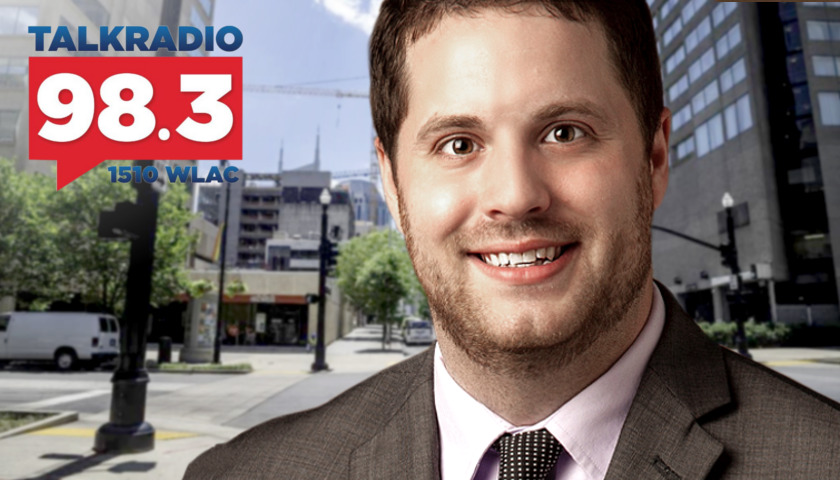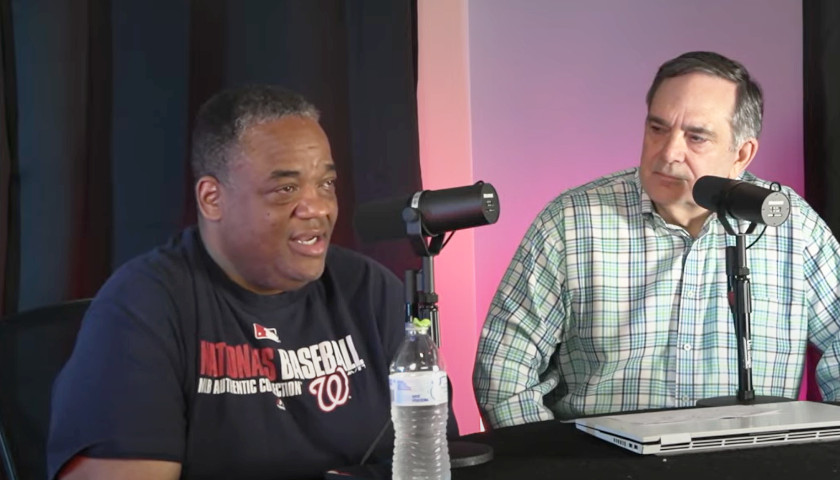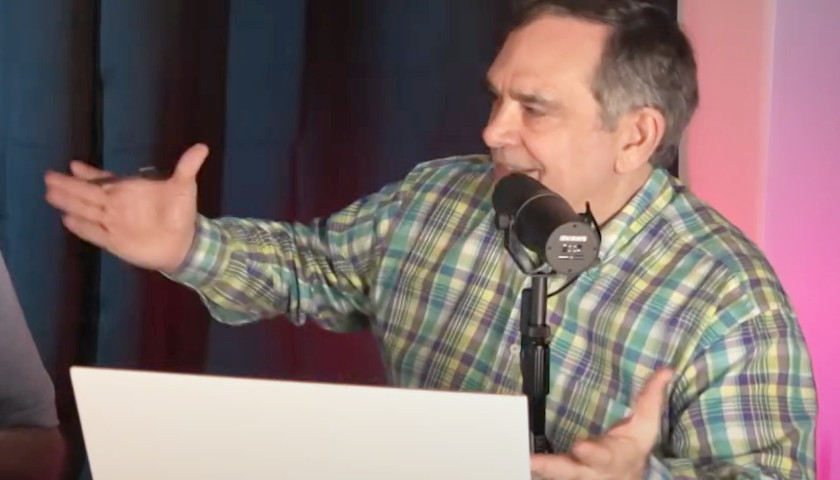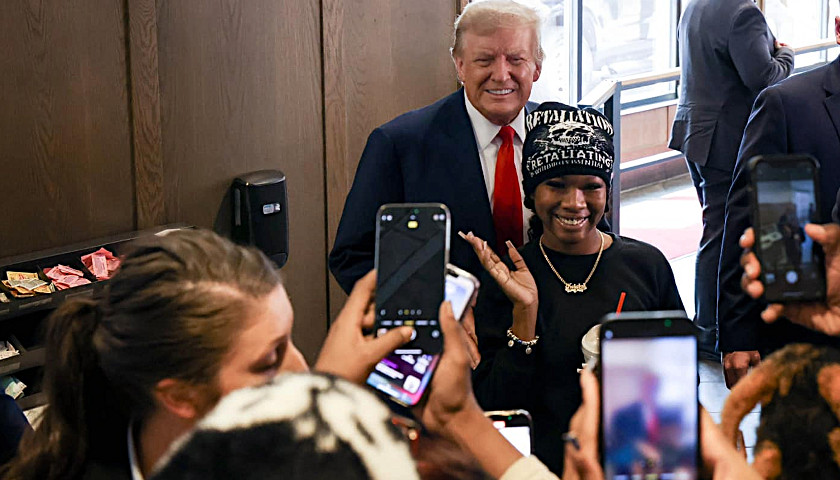On Monday morning’s Tennessee Star Report with Michael Patrick Leahy – broadcast on Nashville’s Talk Radio 98.3 and 1510 WLAC weekdays from 5:00 am to 8:00 am – host Michael Patrick Leahy talked in-depth with the Beacon Center’s Vice President of Communications Mark Cunningham on the newsmakers line.
Towards the end of the third hour, Cunningham weighed in on Mayor Cooper’s proposed 32% property tax increase stating that it was the wrong time to be doing this to the citizens of Nashville in lieu of the government-mandated shutdown and recent tornado destruction. He suggested that government cuts and freezes need to be put on the table if they are going to hinder small businesses while corporate businesses receive tax breaks and incentives.
Leahy: We are joined now by our good friend Mark Cunningham, the Vice President of Communications with the Beacon Center which is the premier conservative think tank in Tennessee. Good morning Mark.
Cunningham: Good morning, Michael. Thanks a lot for having me.
Leahy: We’ere always happy to have anybody from the Beacon Center. It’s so nice to have a strong conservative outlet think tank that just does great work. The Beacon Center has been around for 20-25 years now? Long time.
Cunningham: Yeah. About 15 that’s right.
Leahy: 15 years. So Mark, Crom, and I have been talking about this 32% property tax increase that Mayor Cooper has suggested. As the city’s small businesses are told they can’t open up. The Beacon Center put together several alternative ideas. Why don’t you tell us a little bit about those?
Cunningham: Yes. First of all, it’s such an insane proposal at the worst time possible. You are talking about people that had damage to their homes from the tornado. People that have lost their jobs due to the COVID-19. And of course, businesses that have lost revenue due to a government-mandated shut down by the very same mayor who’s proposing this.
First of all, this is just the absolute to hurt these people with a property tax increase. You are punishing people who have been hurt by these huge recent events. One of the things that we are suggesting and we have suggested for a long time is that this is kind of our time to get rid of corporate welfare completely in this city.
We went back and looked at our previous pork reports. I know that you know about it. It’s a yearly report biggest waste in the entire state. Since 2015 we have pointed out more than 300 million dollars in government waste in Nashville alone. That doesn’t include the soccer stadium. Which would be enough to cover the entirety of the tax increase that Mayor Cooper is suggesting.
Leahy: Well, that money has been spent I guess right?
Cunningham: Yes, most of it has been spent and some have not been spent. You hear a lot of these corporate deals which you could potentially renegotiate. It’s kind of crazy. I know you had Carey Bringle on…
Leahy: Yes!
Cunningham: Who’s one of our favorite persons with the best ribs in Nashville. He’s got to pay 100,000’s of dollars in property taxes. Then you see these gigantic restaurant chains paying nothing in property taxes. And the very same liberal people are telling us, oh, we need fairness for everyone but apparently except for small businesses. These are the people being hurt the most. These gigantic corporations are paying nothing in property taxes.
Leahy: That’s something that you point out that is obvious but I never really thought about it that much. The big chains are getting the tax breaks from the city and the smaller businesses that have invested, I mean Carey Bringle told us he’s spent 3.5 million bucks and paid thousands and thousands of dollars in taxes. Now they want to increase his taxes by 32% and oh, by the way, they won’t let him open up for business.
Cunningham: That’s right. I remember the owner of Arnolds Country Kitchen said, I look right outside and I see this huge Marriott and they’re paying zero dollars in property taxes. Meanwhile, you’re asking me to pay 32% more in property taxes when I’m not even allowed to open up. It’s kind of insane from any perspective. And this should not be a political thing. Anybody with common sense can see this. When you have councilmen like Freddy O’Connell saying oh, this is too much, you really know you have a problem.
Leahy: Exactly. Is there any hope that the mayor will actually listen to your suggestions?
Cunningham: Truthfully I think that there is. Compared to past mayors and the last three mayors that have basically just ignored everything we said and said oh no we’re not going to listen to anything they say it’s a crazy right-wing think tank. But Mayor Cooper has been really open to listening to us and has talked to us a few times. And he really does seem to care about the city. And of course, it’s not his fault we’re in this. It’s the last three administrations.
He’s generally voted right-wing in the council and the horrendous city council we have in Nashville. But even with that being said this is just I hope it was just an initial suggestion to throw and see how people took it. People are not taking it well. But the city needs to be willing to accept if they’re asking their citizens to bear so much. Freeze for employees. Wages and hiring freezes.
Leahy: Have they recommended cutting for non-police employees or non-fire department employees, has the mayor recommend cutting salaries for city employees?
Cunningham: He has not yet. We hope he will though. That needs to be on the table. If you’re going to take this extreme step of 32%. Every single thing needs to be on the table for the government. And including selling the amphitheater. Things the government shouldn’t be owning in the first place. Everything needs to be on the table if you think a 32% increase is necessary.
Carmichael: This is Crom. Let me ask you this question. What about the healthcare retirement benefits which are completely unfunded for retired metro employees. Can those be amended or shaved? I’m not trying to eliminate them all at once but they definitely need to be reform that either eliminates them or funds them over time. But in the meantime can they be shaved or put a cap on? Can they just put a cap on and say the most that we will pay for any retired employee is X? Can they do that?
Cunningham: Yes. I believe they can put a freeze on any kind of increase in that but they’d need to negotiate that deal with them. But of course like you said healthcare benefits are a really expensive thing we’re talking about. As you said, everything needs to be on the table.
And if the city employees are going to say, oh yeah we want to raise taxes 32% of homeowners, they need to be willing to take cuts too. We have a real problem. This is not the COVID-19 or even the tornado. This has been going on for decades. One of the best economies of two years straight and obviously Trump has been a big part of that, where things have gone really well.
Somehow the city does not have a rainy day fund. So now we’re spending more money than we’re taking in. It makes no sense. People need to look at city leadership over these past 10 years and say, what have you guys been doing over this whole time?
Leahy: You know you are talking about as a metro council member that now Mayor Cooper had been a bit of a budget hawk. I’m reminded of that old saying, where you stand depends on where you sit. Has he changed his attitude about this now that he’s the mayor and the person responsible for the budget?
Cunningham: I think that’s a good question. I hope not. That’s the best thing I can say. He has come to us numerous times since he’s been in office and asked, OK, how can I cut some money on the budget. I hope this is just an initial let me throw this out there and see what the reaction is and then maybe I’ll lower it or get rid of it completely till later if we can think about ways to do it. It’s concerning and of course, I would agree with you it’s not his fault we’re in this situation. But the way he’s handling is obviously not the correct way to deal with this right now.
Leahy: Are there any charter limitations on such a gigantic increase in property taxes? I thought there was a change in the charter that said if you increase taxes by more than a certain amount it has to be approved by the people. Do you know the details on that?
Cunningham: That’s right. It doesn’t meet that threshold. We’ve looked and that does not meet that specific threshold. I think that number was probably picked on purpose because there’s no way that passes. I don’t think there’s any way the Nashville voters would accept that. Unfortunately because of the number he chose which is smaller than the minimum amount to do a referendum, it will not go to vote unless the signatures were gotten to do that which seems very unlikely with the time frame.
Carmichael: Now I’m curious, I thought there was a referendum that was passed maybe 10 or 12 years ago that did put a limit on the increase in property taxes without coming back to the voters. And you’re telling me that 32% is under the threshold?
Cunningham: That’s correct. I don’t know exactly how it works. But I think it’s overtime because property taxes have not been raised I guess in a number of years and that because of that total number does not meet the threshold needed for a referendum. Maybe the numbers too high to begin with it won’t go to referendum, unfortunately.
Leahy: Disappointing. (Chuckles)
Carmichael: The previous administrations and I don’t remember whether it was Mayor Barry or Briley who did put the mass transit to a vote to the citizens and it failed two to one.
Leahy: Yeah. Two to one. It was crushed.
Cunningham: Correct. And that is because of a state law making them do that. If it’s a state law that is passing you can’t do any transit thing without a referendum. The most important thing, cutting the transit thing is an important thing to bring up.
If it was up to the city council we would be an extra 10 million in debt because they would have passed it. If that did not have to go to referendum this would have passed. I don’t know what we could have possibly done to pay that money. We need to remember how little we should listen to the city council at all when it comes to any economic sanity. I mean these people have done insane things after insane things.
Leahy: The problem is that they’ve been elected by the people to do insane things.
Cunningham: That’s right. That’s exactly right. And there’s nothing you can do except that if you are not happy with them then you should let them know that. This is a different council that we’ve had in past years. I talked to Justin our CEO about this and the new members are 10-12 new members from when the transit thing went through.
So we’re really hoping that these members will take their constituents’ concerns to heart. I’ve been seeing on Facebook and Twitter and all these other places I’m seeing liberals and moderate left people say no, we cannot possibly do this. Even if you want to pass it you certainly can’t pass it this much. And we don’t think you pass a property tax at all. So I do think there’s a lot of bipartisan consensus on not passing this property tax.
Leahy: Mark Cunningham with the Beacon Center, the Vice President of Communications. Thanks for joining us here. Come back again soon on the Tennessee Star Report.
Cunningham: Absolutely. Thanks for your time guys.
Listen to the full third hour:
– – –
Tune in weekdays from 5:00 – 8:00 a.m. to the Tennessee Star Report with Michael Patrick Leahy on Talk Radio 98.3 FM WLAC 1510. Listen online at iHeart Radio.








